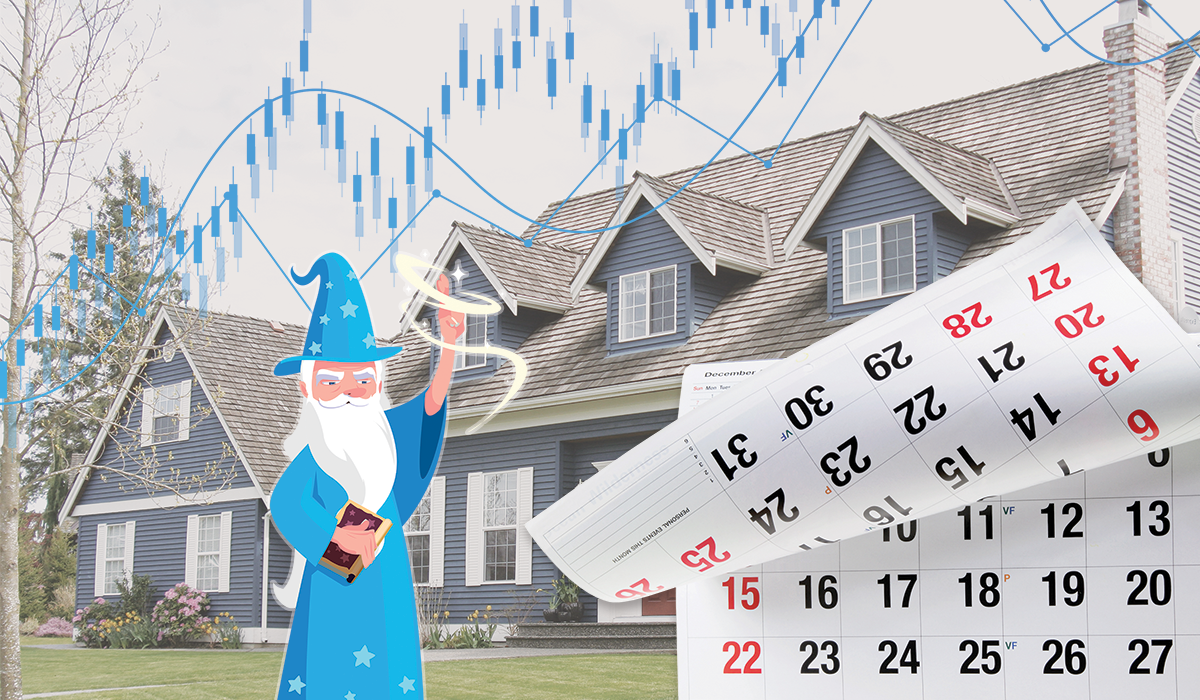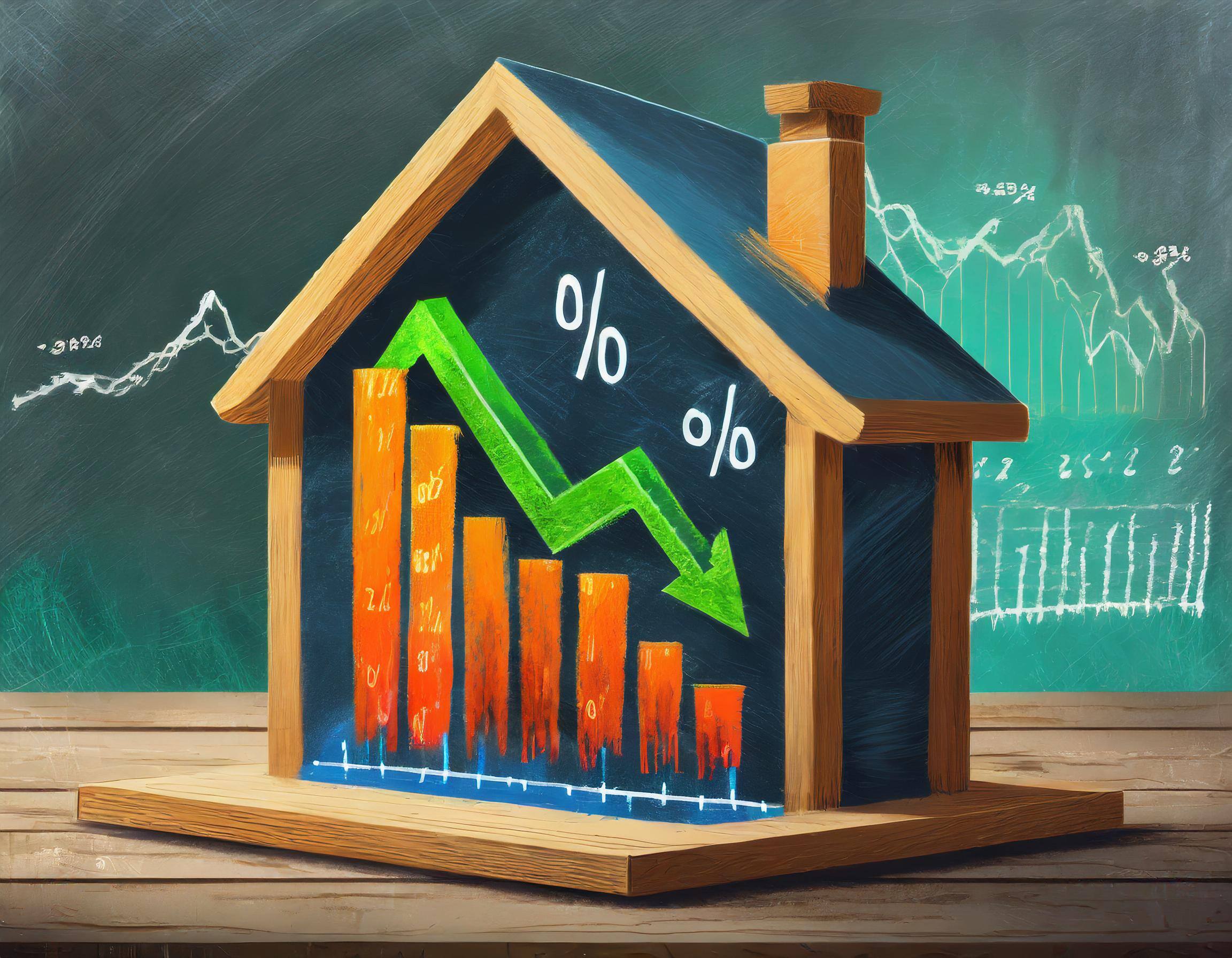It's possible that getting a bargain is part of our collective DNA. Consider the stock market investing catchphrase, "Buy low, sell high." The trick is to time the market to pay less for a stock, then wait for the price to go up. It makes sense so you can maximize the profit.
That same market timing mentality seems come up with one of the most big-ticket items you can buy: a house. If you're lucky it will work, but can you expect time the market when it comes to buying a home? Well, it's a lot harder than it sounds.
Old School Market Timing
A red-hot, competitive housing market leaves many buyers frustrated and facing sticker shock. Naturally, their bargain-hunting instincts are triggered, so they pull back and rethink the timing of the purchase. How will they know the right time? Should they wait so they don't overpay?
Interest Rates
The first thing buyers blame is interest rates. When rates began to fall, buyers flooded the market to take advantage of this once-in-a-lifetime opportunity. As a result, home prices rose - if you could even get an offer accepted.
The natural assumption is that those market conditions will reverse when rates go back up. They think buyers will disappear, causing home prices to fall with the lack of demand. So they sit back and wait.
National and Global Events
It's impossible to avoid hearing about global economic turmoil if you follow the news or social media. Whether it's inflation, the pandemic, international military conflict, or all the above, that turmoil impacts our economy. And it's not positive.
Buyers might see these events as directly impacting the housing market. They assume that as soon as the world normalizes, so will the housing market. Prices will drop, protecting them from overpaying. Again, they sit back and wait.
Seasonal Economics
Back to school, major holidays and the Super Bowl used to reduce the flow of buyers in the housing market. On the other hand, the beginning of spring and late fall would open the flood gates. Buyers relied on competition increasing and decreasing with the seasons.
Sellers trying to maximize their sales price and how fast they sold their home would put their home on the market to catch the seasonal wave. Buyers who wanted a good price would wait for the changing seasons.
Timing the Market Today
It's just not that easy to time the housing market today. The old-school triggers like rising interest rates, global bad news, and the changing seasons don't seem to make an impact. While the number of homes sold ebbs and flows, prices are another matter.
Nationally, there are multiple reasons home prices have sky-rocketed. Historically low rates definitely contributed, but they weren't the only explanation.
There's also increased demand due to the rise of potential buyers in the market. The largest living adult population, Millennials, are reaching the perfect age to buy their first home, and there are a lot of them. While higher rates may eliminate a small percentage of these new buyers, it won't stop the flood
Currently, there's an estimated shortfall of 4 million homes to meet current demand. That's partly because too few homes are being built to accommodate all the people who need housing. A lack of building over the last decade contributed to this, and it's been exacerbated by the impact of the pandemic. It created a clogged supply chain, raising the price of raw materials and limiting their availability.
Adding to the reduced construction of new homes are too few existing homes listed for sale. Successful sellers turn into buyers - competing for a home like everyone else. That's enough reason for potential sellers to hang on to their homes - to avoid becoming a buyer.
There's also the extraordinary impact of the global pandemic, which created the new normal of work-from-home. As workers have been able to unleash themselves from the commute, more suburban and rural markets are being impacted. There's really no way to predict if this trend will reverse itself soon, if ever.
Taken together, it's not hard to see why home prices are not likely to fall for the next several years. What looks like an insanely high price today may look like a bargain in a few months. And buyers who attempt to time their purchase with a return to normal markets and lower prices may miss an opportunity.
Where You Live
After looking at national trends that impact the housing market, it's important to understand that real estate is local. Where you live may be affected differently by interest rates, Millennials, jobs, and even home construction levels.
Yes, national trends can affect your region, town, or neighborhood. But there are always unique local factors to take into account. These may not help you time the market, but understanding them is critical for an informed buyer.
To understand, look at how different parts of the country were impacted and rebounded in the Great Recession of 2010. Large metropolitan areas saw unprecedented drops in home prices but recovered within a couple of years. In fact, home prices quickly rose above pre-recession levels.
While in other parts of the country, home prices fell and remained stagnant for years. Until the pandemics' impact discussed above. All of that is enough evidence to suggest that your local market will have its own story to influence housing.
Timing the Market vs. Buying a Home
The final thing to consider is whether you're buying an investment or a home? Yes, your home is undoubtedly one of your most significant investments, but above all - it's your home. It's nice to buy your home low and sell it high, but given the length of time you'll likely own it, there's a good chance this will happen.
It's more important to take your time and find a home you can live in for the next 7-10 years. After that length of time, the original purchase price won't matter as much as the holidays and family memories created there.
Timing the market is difficult even when you're investing in stocks and bonds. But trying to time the housing market is so much harder than it sounds. It might even be impossible.








